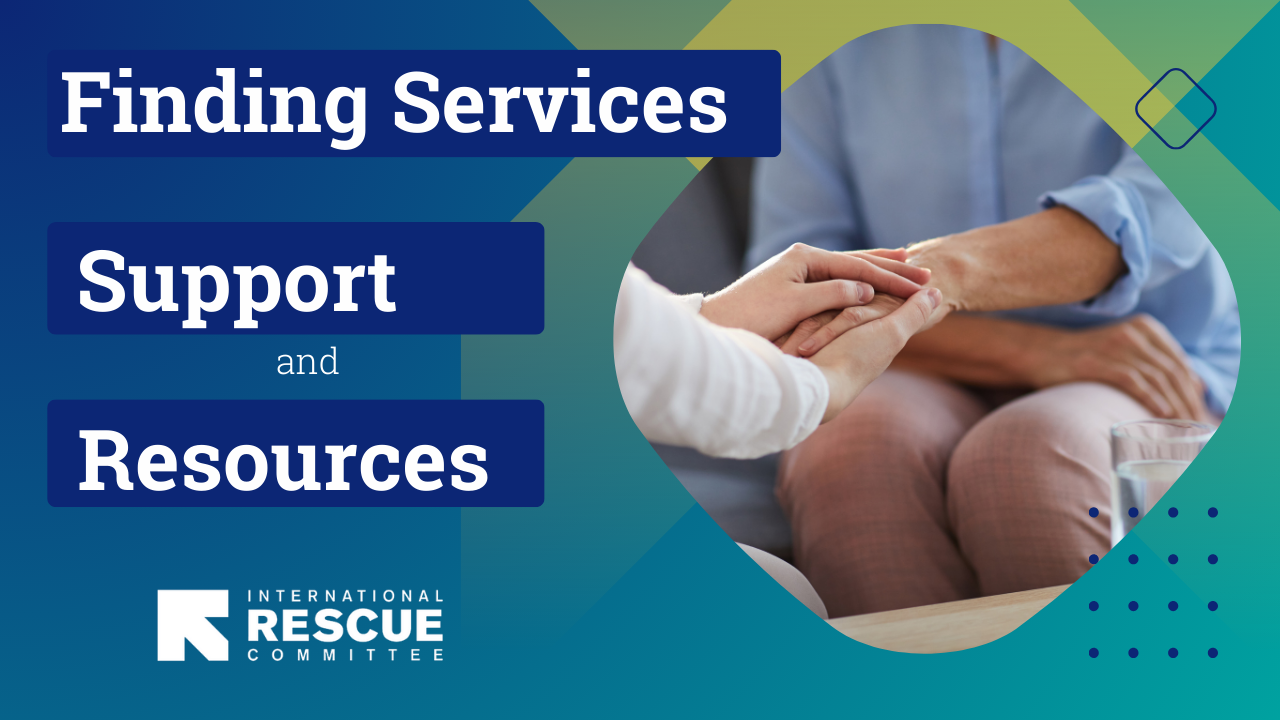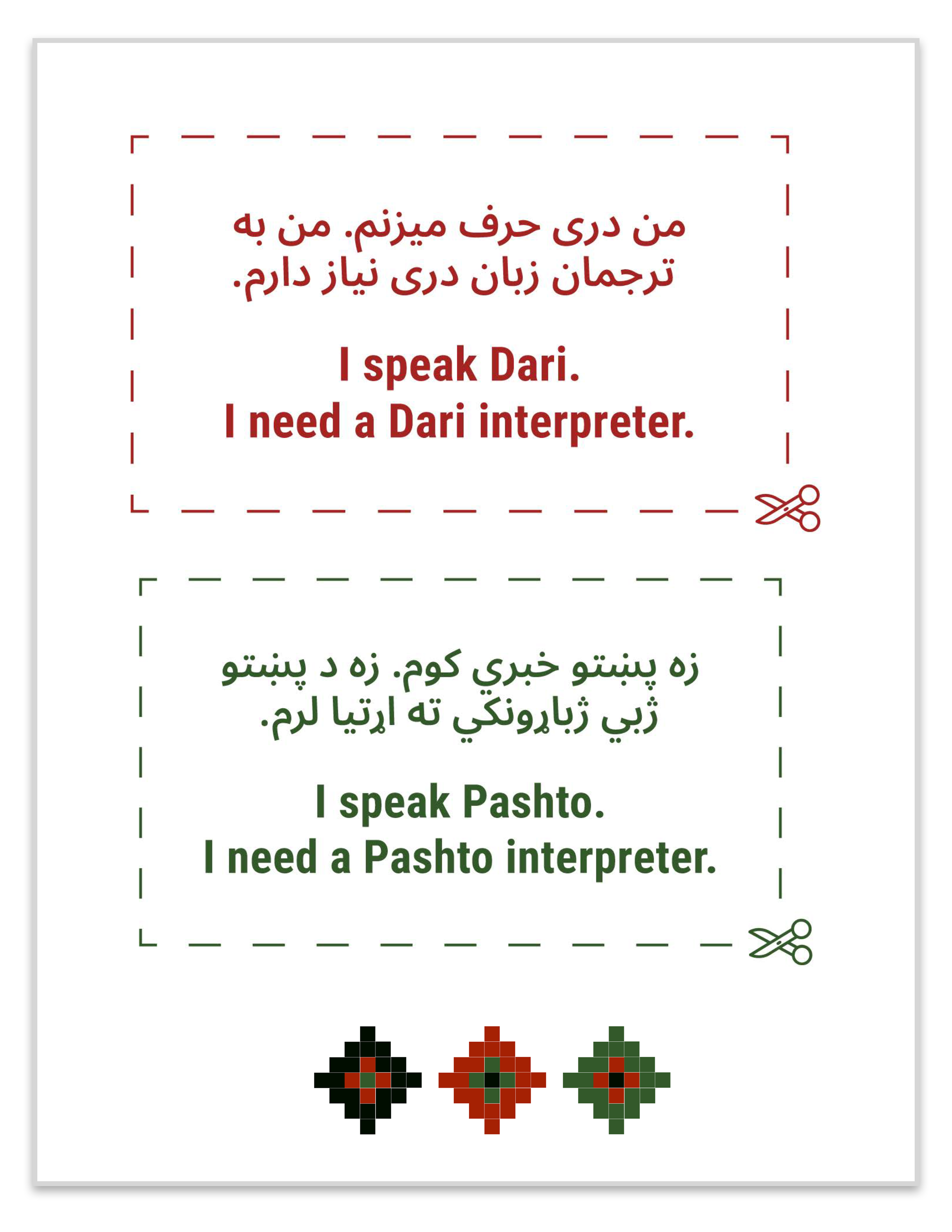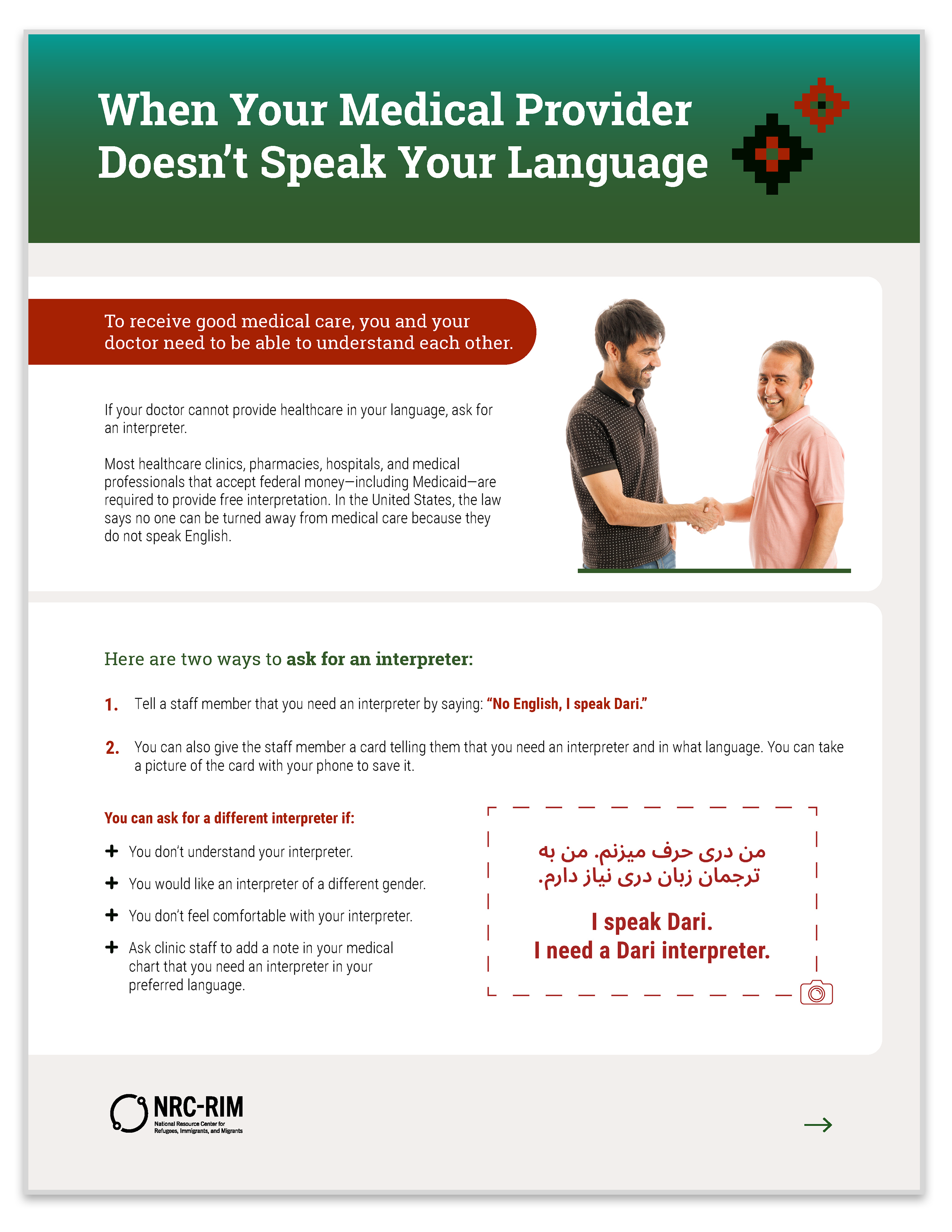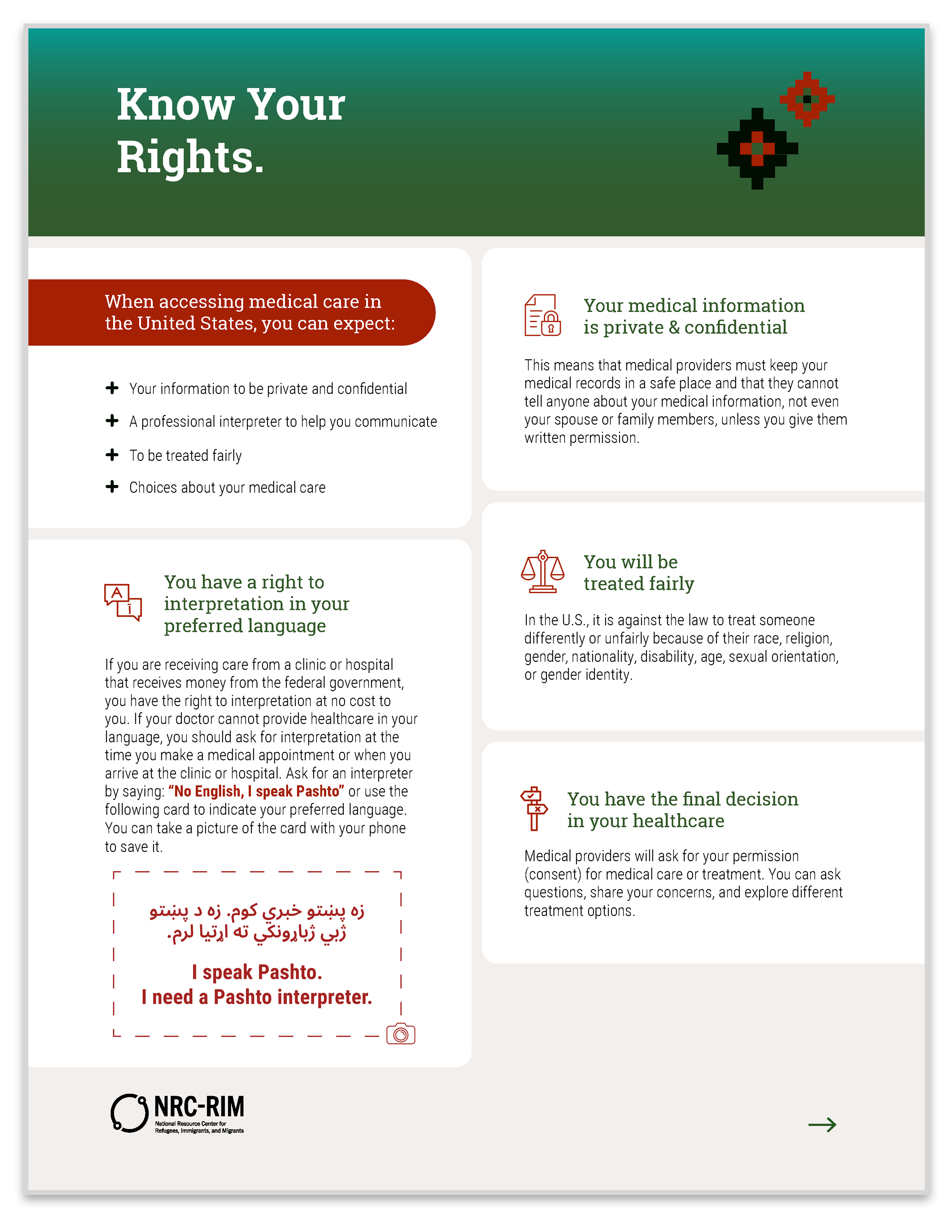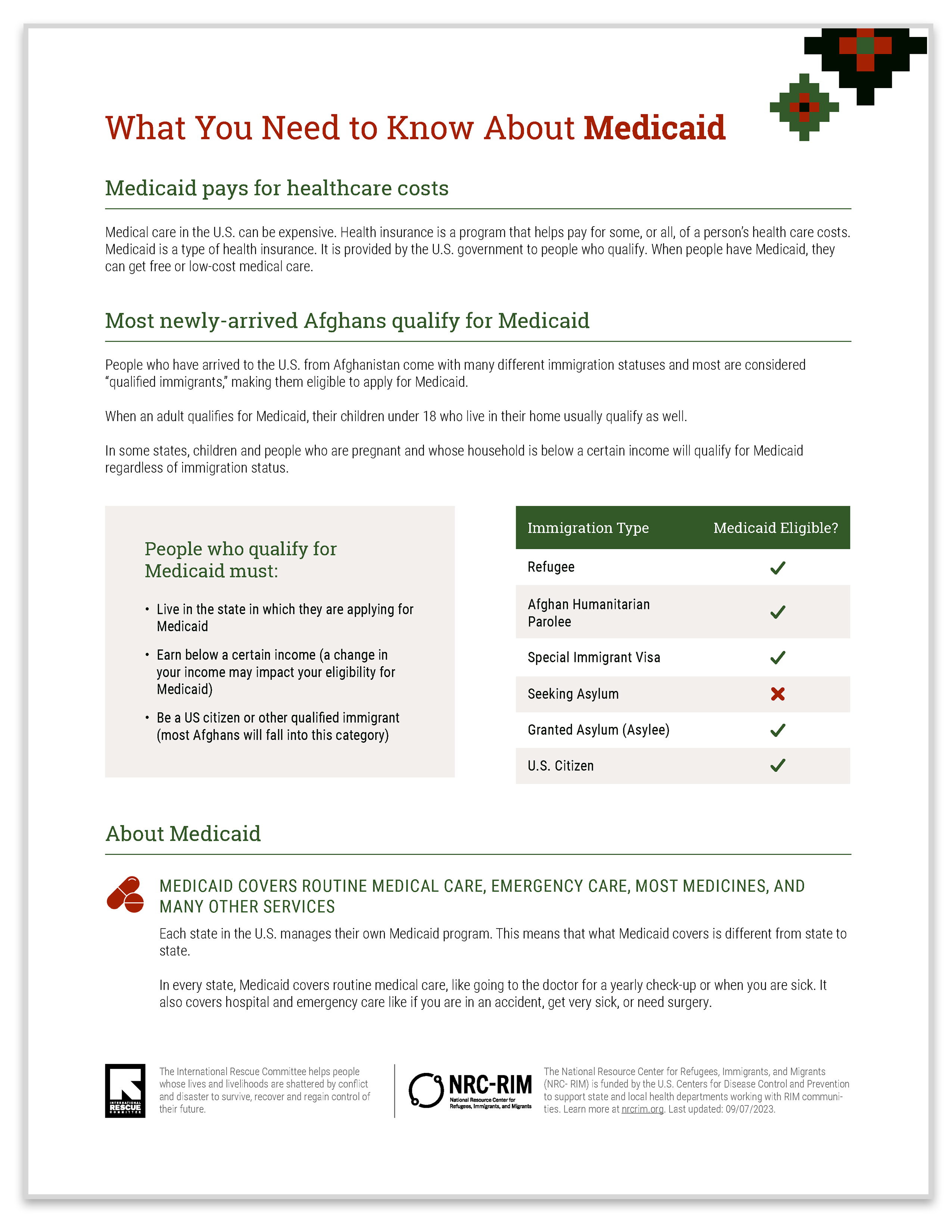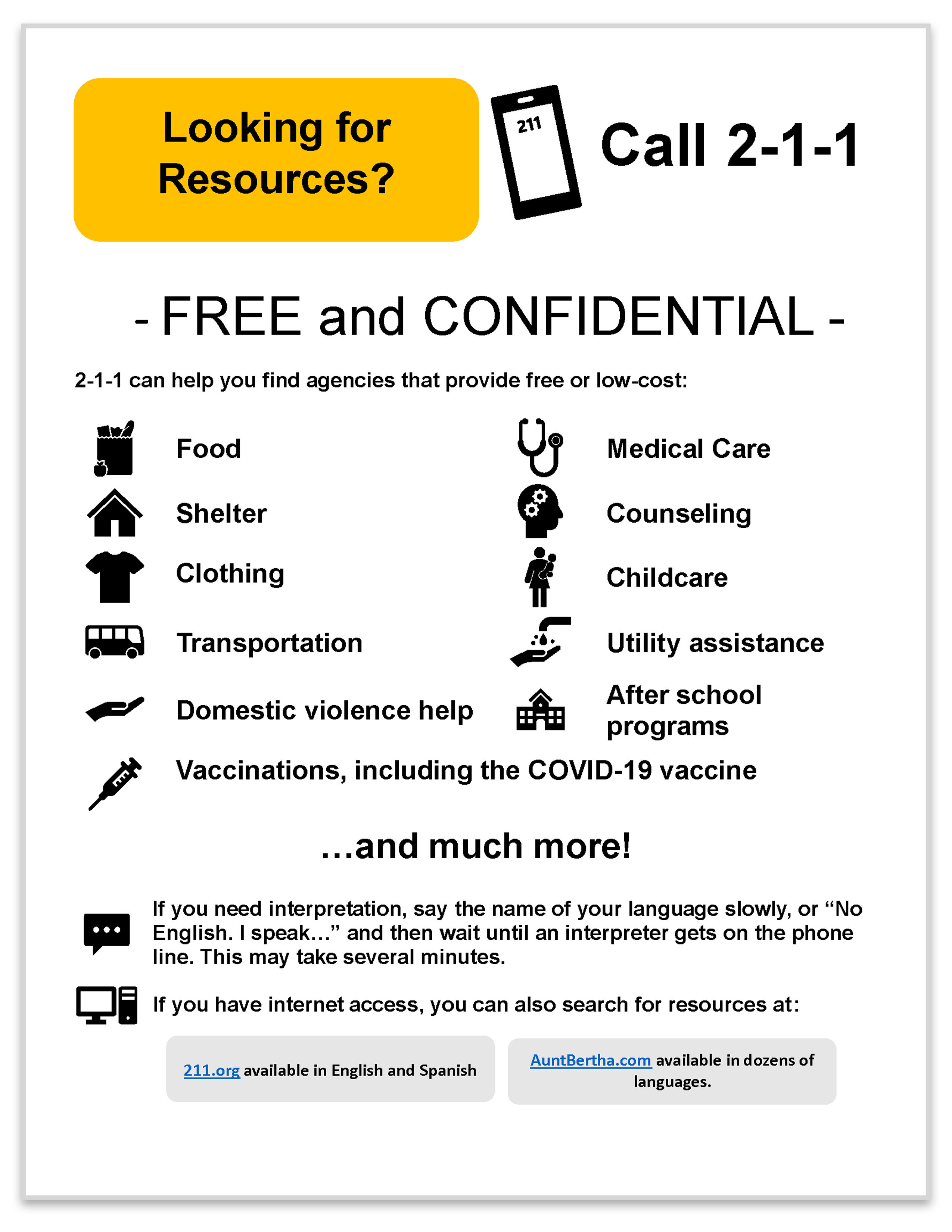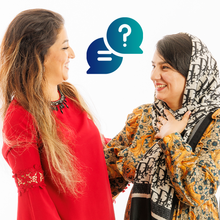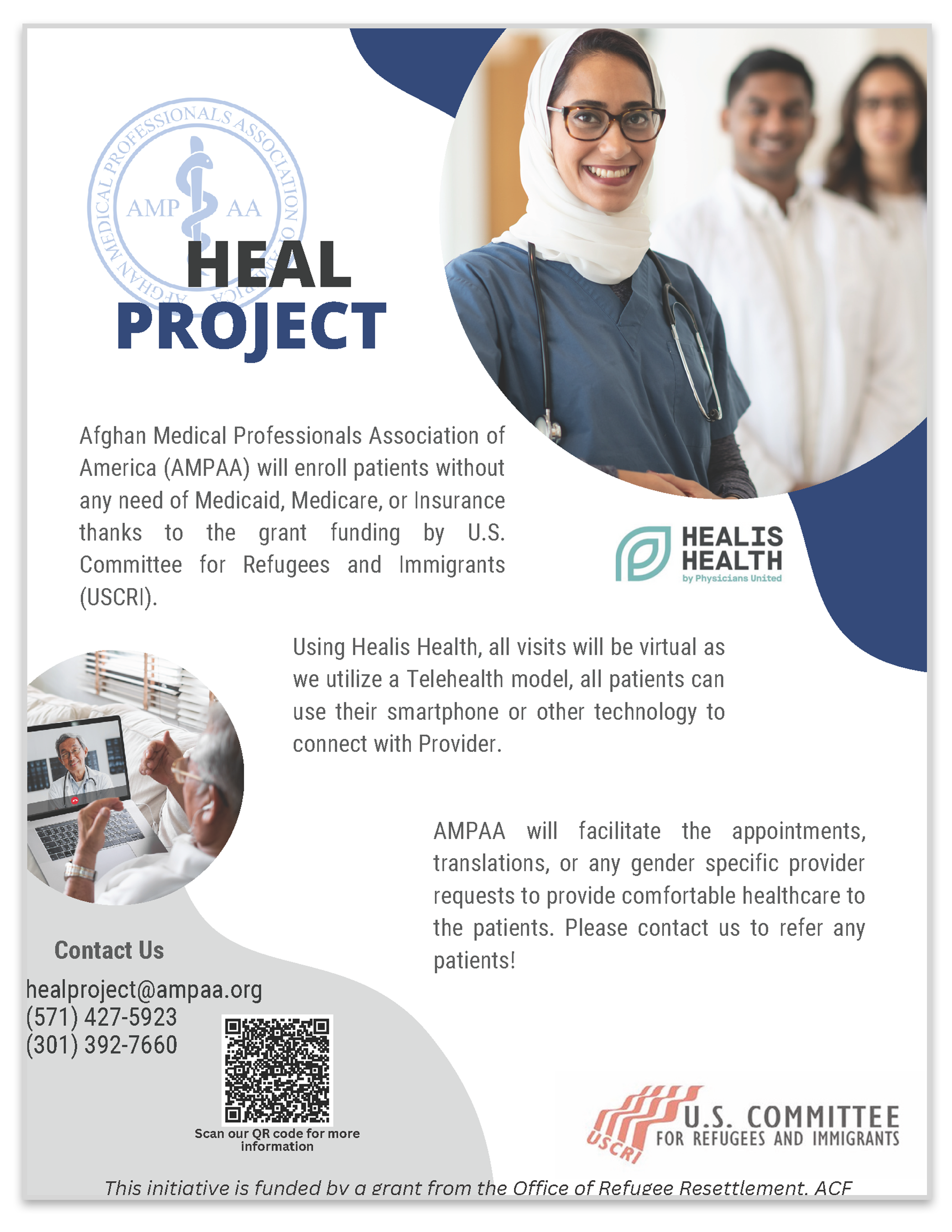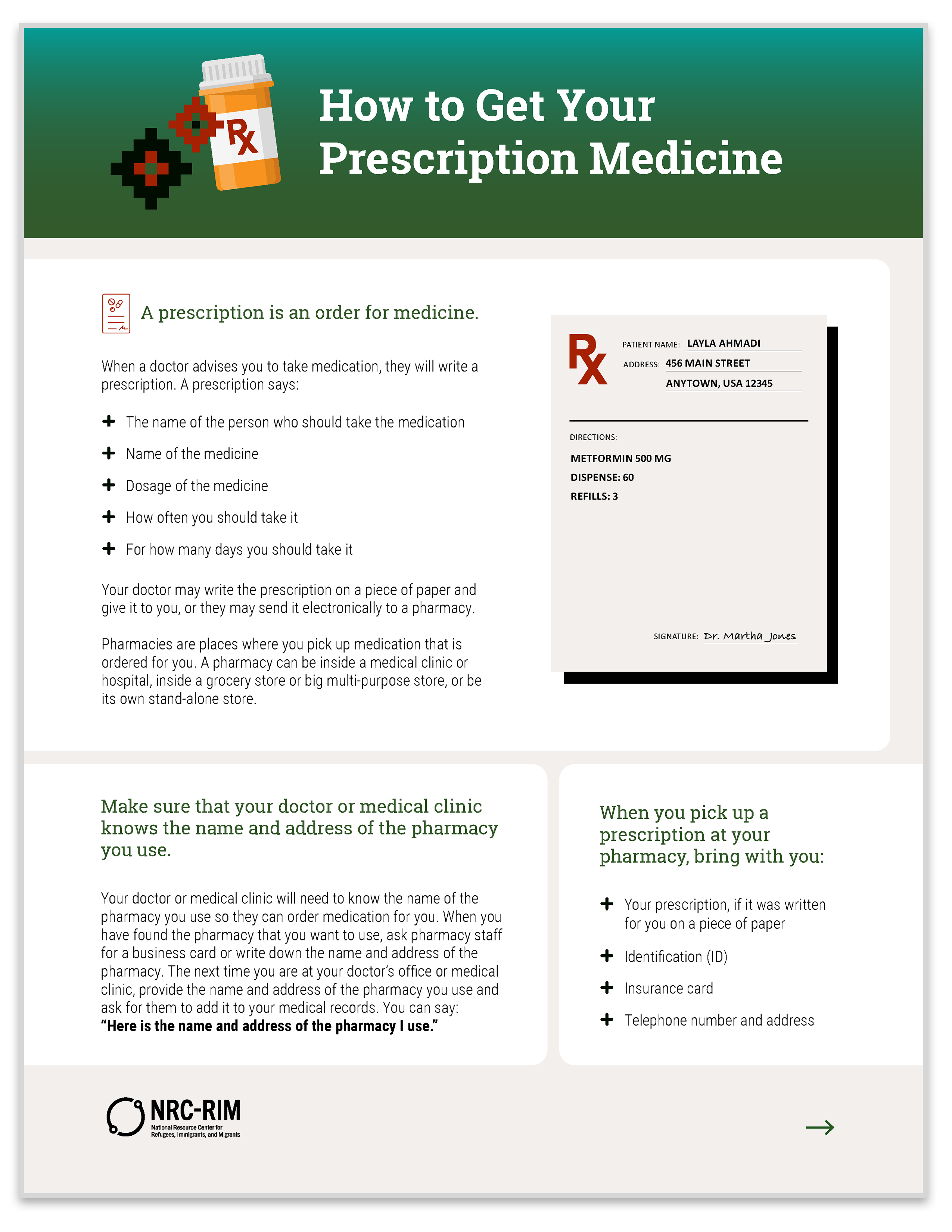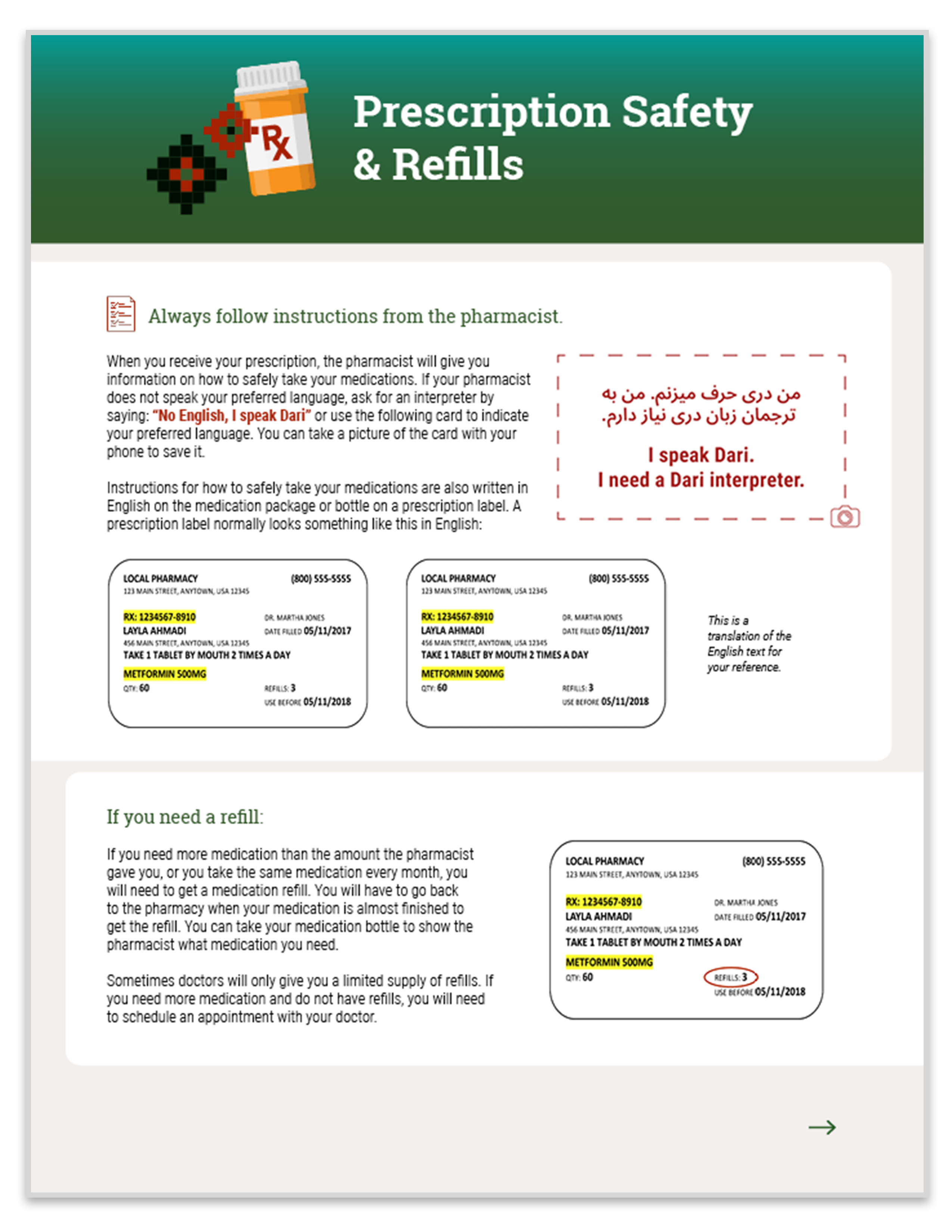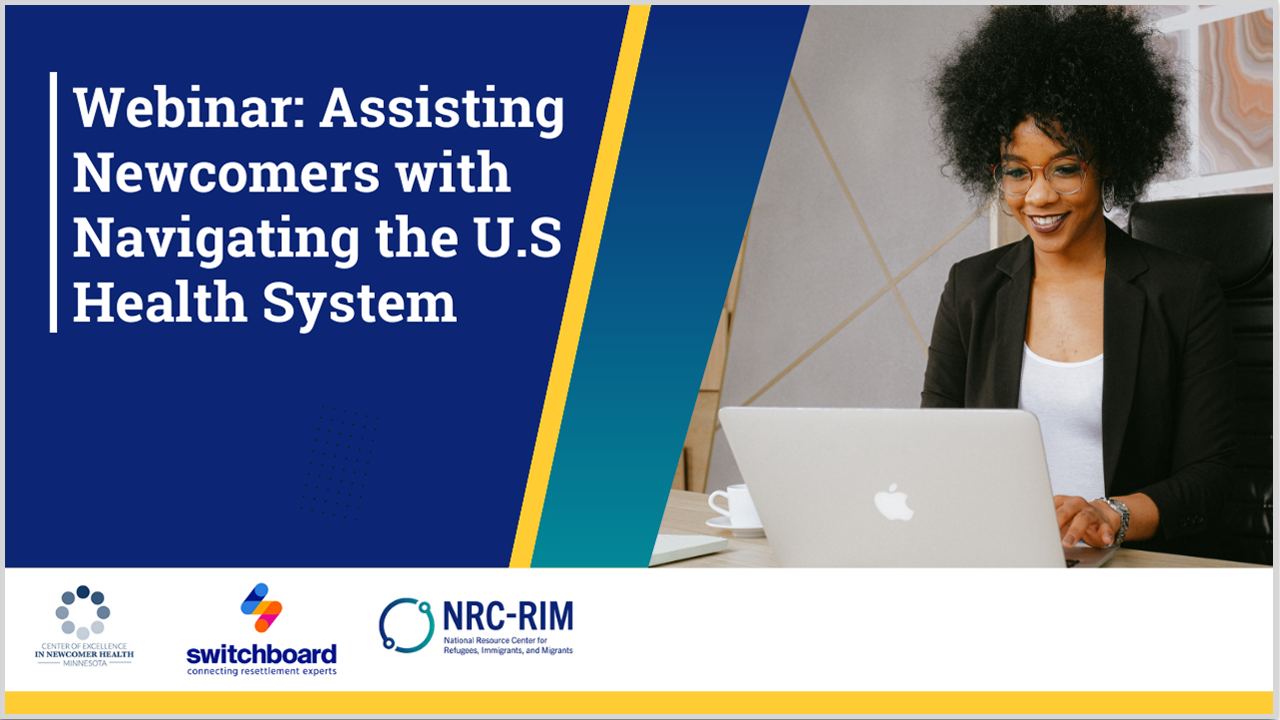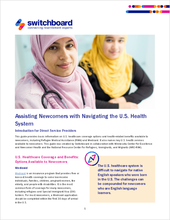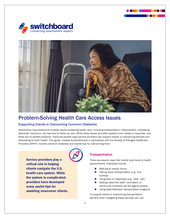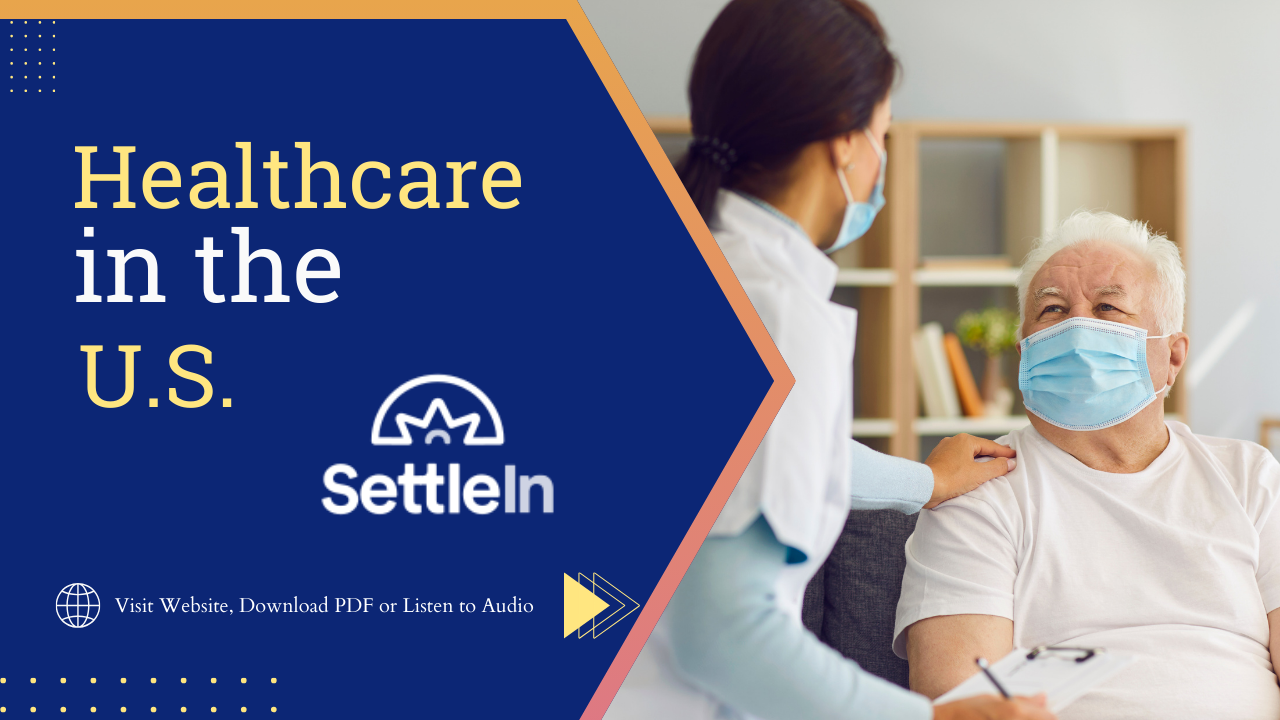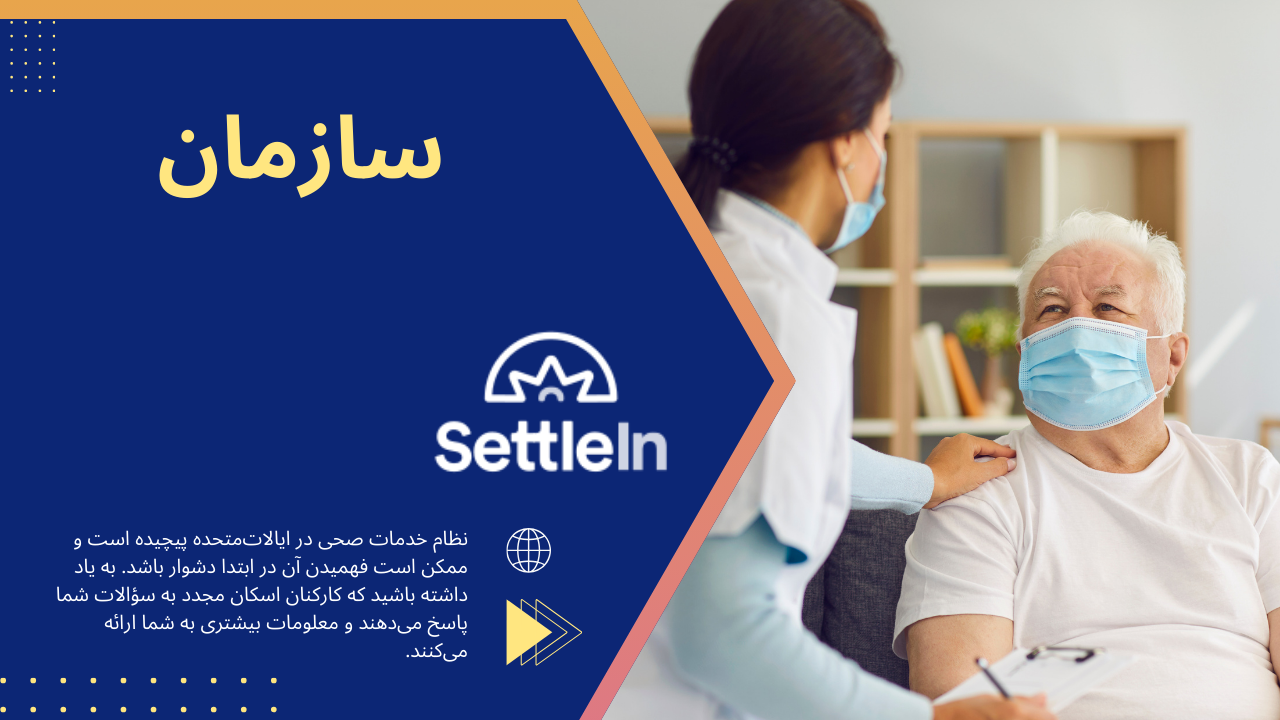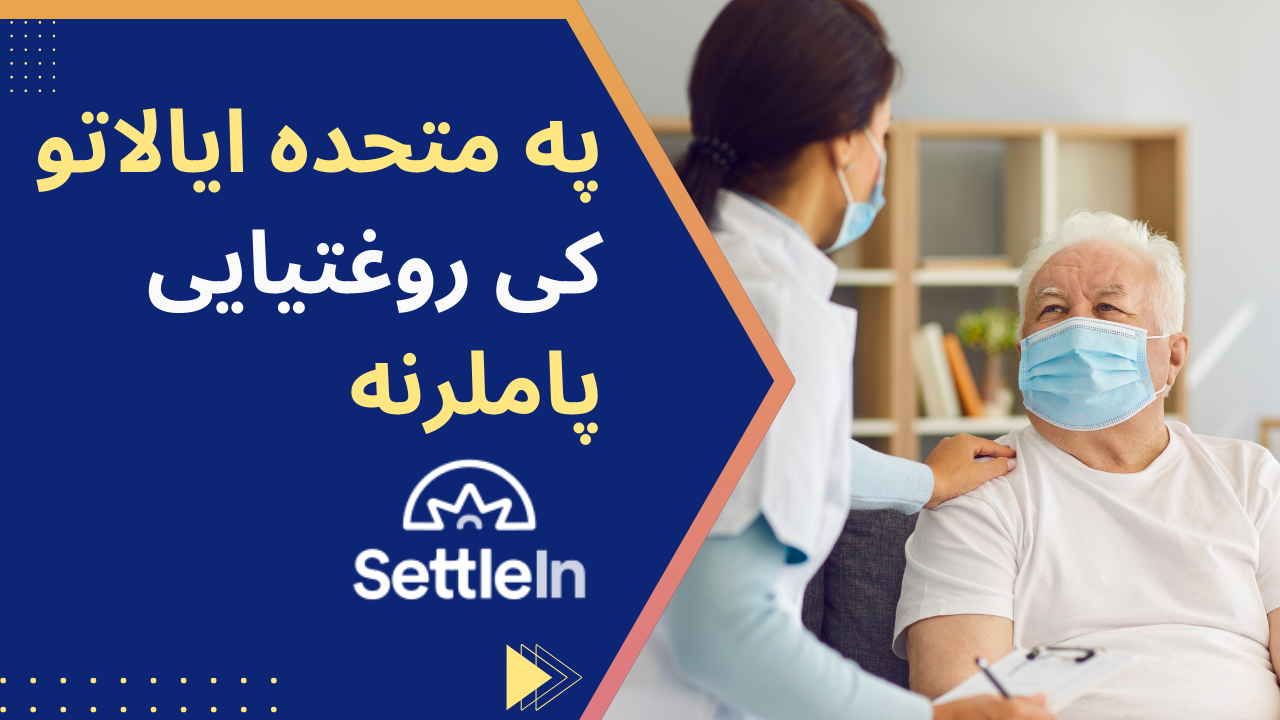
NRC-RIM partnered with the International Rescue Committee (IRC) to create this toolkit, which supports Afghan newcomers in making medical appointments, picking up a prescription, requesting an interpreter, and more.
Afghan newcomers arriving in the United States encounter a healthcare system that can be very different from what they are used to in Afghanistan. These tools, including videos, fact sheets, audio resources and more are translated, customizable and designed with their needs in mind.
Organizations will also find tip sheets, checklists, conversation guides, professional development opportunities and promising practices that they can use in their own programming that supports Afghan newcomers.
Commonly Requested Services and Support
This document provides information on accessing basic needs and services for refugees, immigrants, and migrants who may be ineligible or do not qualify for federal benefits. It covers various areas, including medical benefits, medical care, mental health services, dental care, nutrition assistance, and national-level services for domestic violence.
Video Training for Newcomers
Afghan and Ukrainian new arrivals have a new tool for learning how to navigate the U.S. healthcare system. Our friends at CORE held Facebook Live events in English, Dari and Pashto to aid clients in understanding everything from what to do in an emergency to how to pick up a prescription and more. Clients who missed the live events can now view the videos on-demand.
Part 1: Learn about the different healthcare providers and services in the US.
English | Dari | Pashto
Part 2: Learn about what to do when you have a healthcare emergency and calling 911.
English | Dari | Pashto
Bonus: Learn about different levels of healthcare.
English | Dari | Pashto
The International Rescue Committee (IRC) in Denver created a "Health and Wellness Workbook" to support Afghan newcomers navigating the U.S. healthcare system. This portable book includes personalized medical information, healthcare basics, local provider contacts, and patient rights.
A generalized version of IRC Denver's workbook is available for organizations to use across the country. The bilingual workbooks have undergone extensive cultural validation and are available in Dari/English and Pashto/English.
Start with Health & Wellness Essentials and add expansions for Adult Health History, Child Health History, and Healthcare Navigation Support. Want them all? Download complete workbooks in Dari/English and Pashto/English.
Health & Wellness Essentials
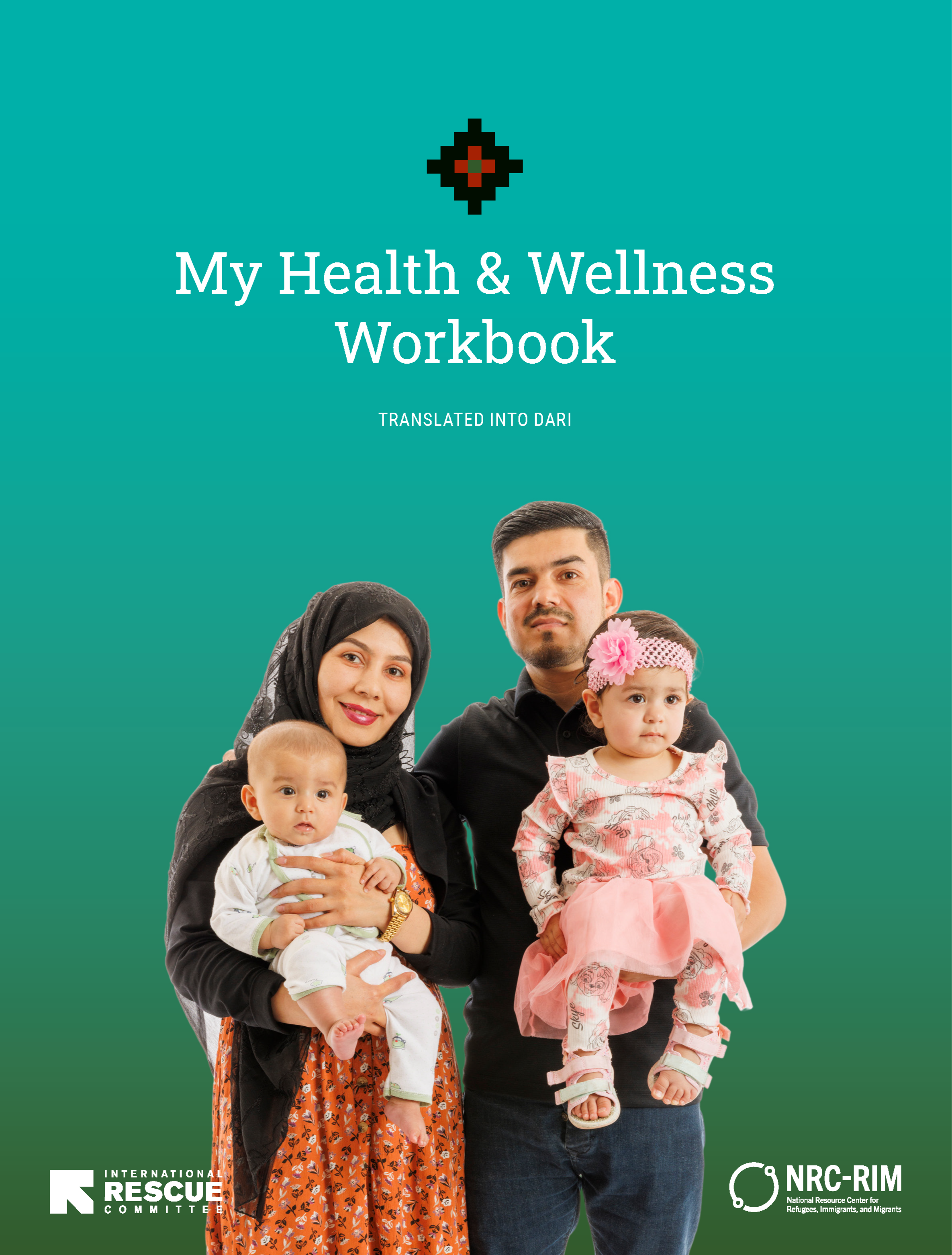
English + Dari
Download PDF
English + Pashto
Download PDF
Adult Health History Expansion
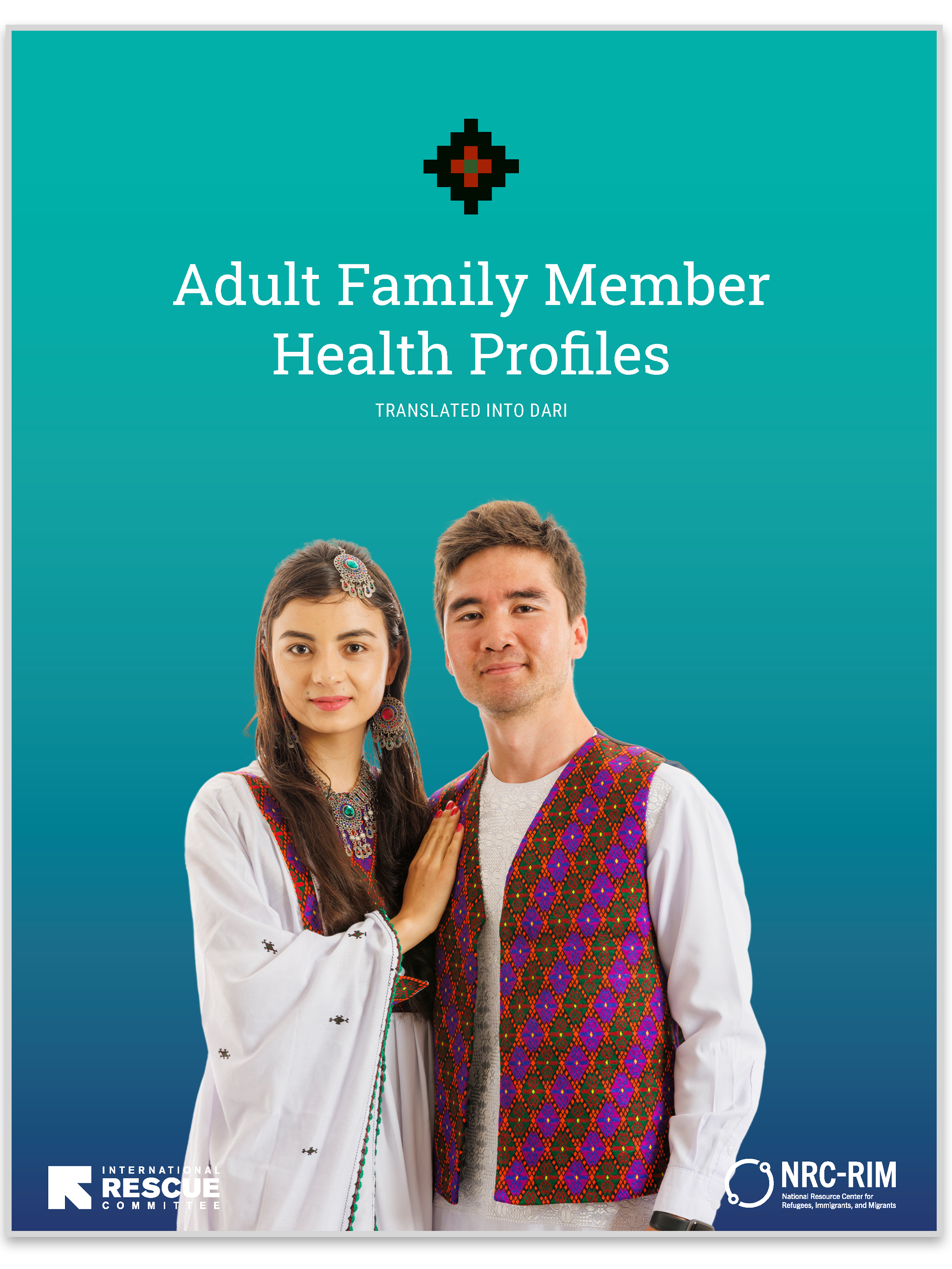
English + Dari
Download PDF
English + Pashto
Download PDF
Child Health History Expansion
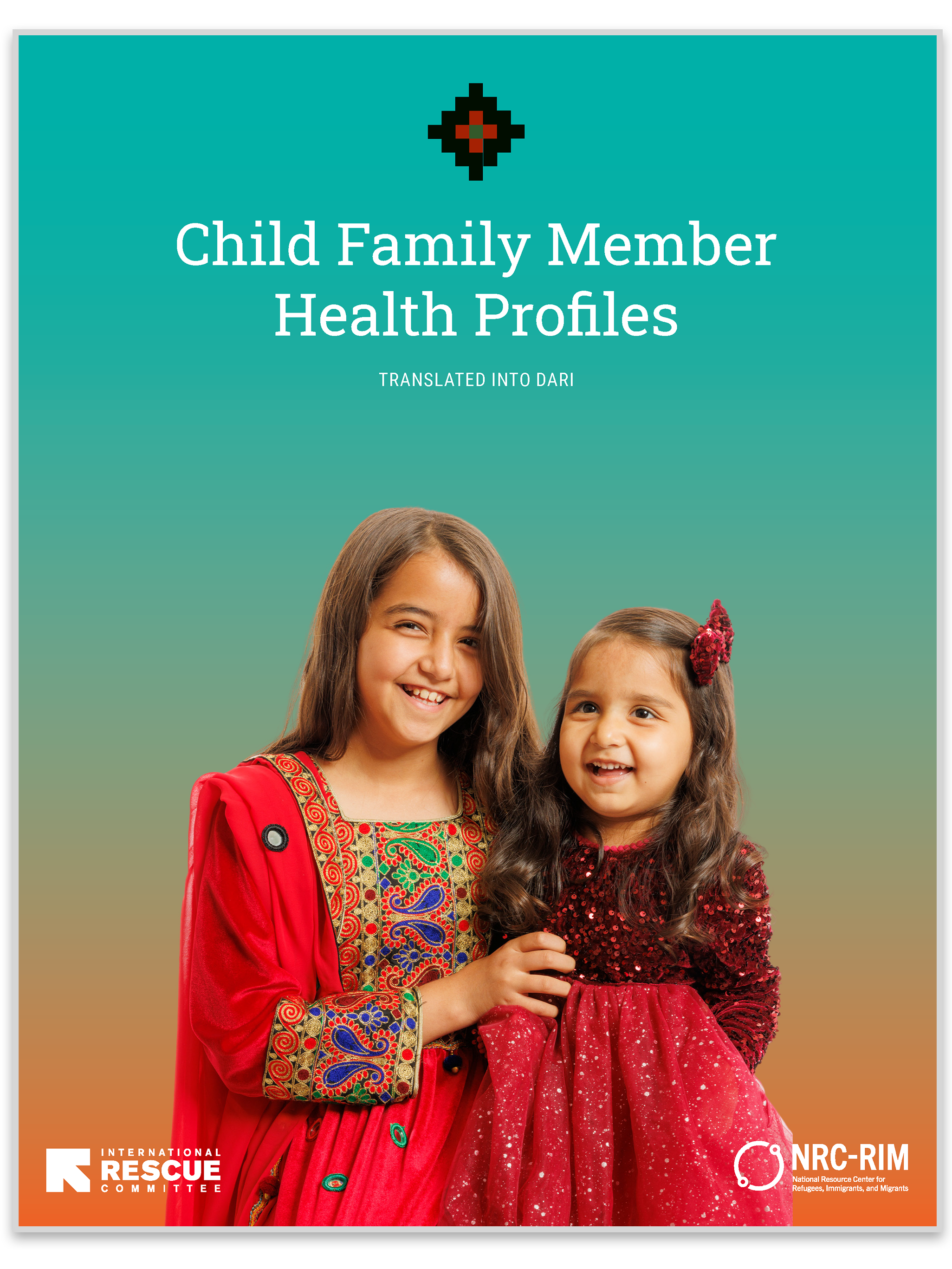
English + Dari
Download PDF
English + Pashto
Download PDF
Healthcare Navigation Expansion
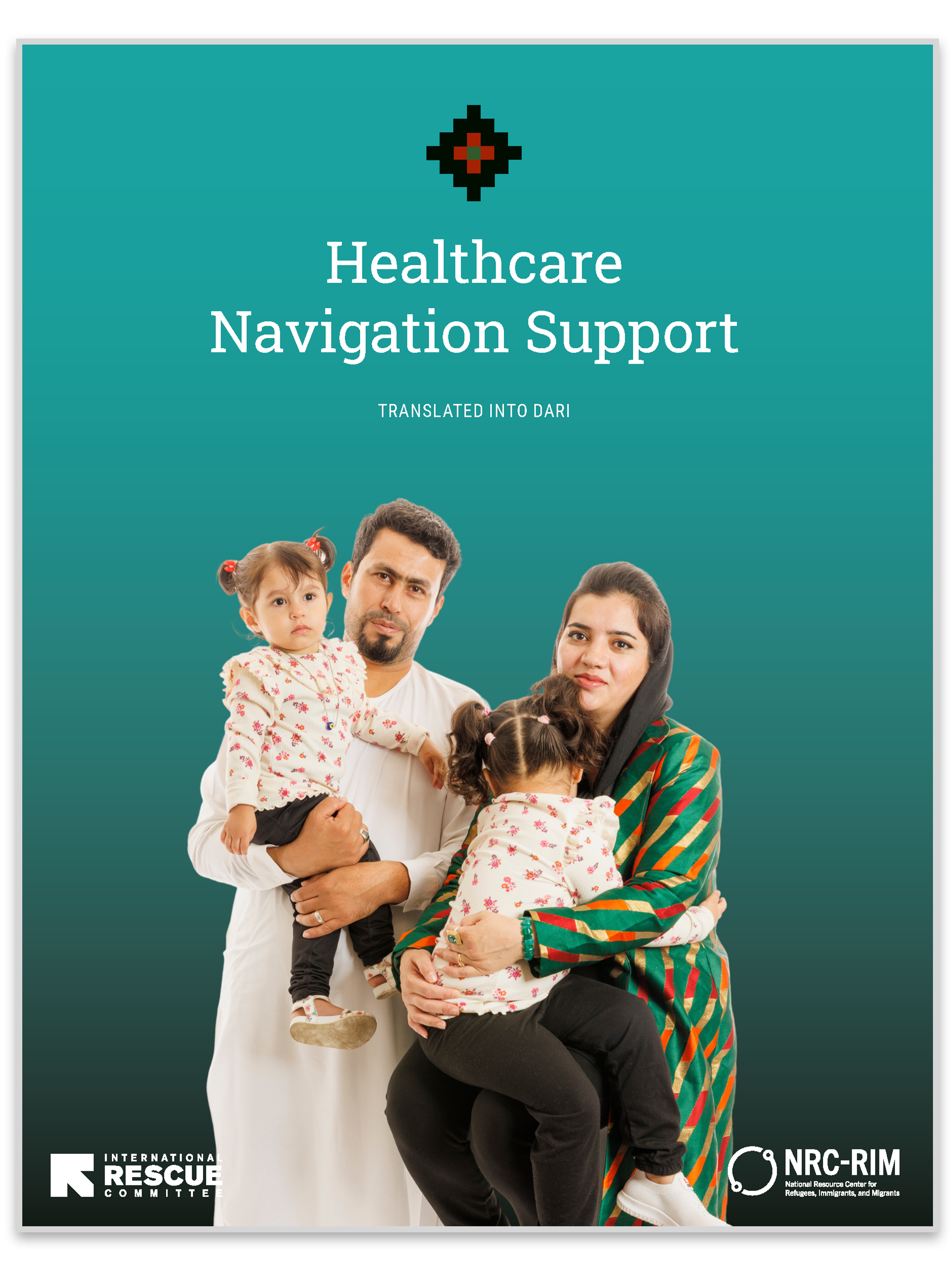
English + Dari
Download PDF
English + Pashto
Download PDF
Calling 2-1-1
Free and confidential advice on accessing healthcare, food, transportation, vaccines, counseling, and more is available by calling 2-1-1 or visiting 211.org. This resource is particularly useful for people who are ineligible for federal benefits like Medicaid. Available in 36 languages, this flyer promotes 2-1-1 and offers guidance on how to ask for an interpreter for the call.
Download: Amharic | Arabic | Bengali | Burmese | Chinese (Simplified) | Chinese (Traditional) | Dari | English | Farsi | French | Haitian Creole | Hindi | Karen | Karenni | Kinyarwanda | Korean | Lao | Lingala | Nepali | Oromo | Pashto | Portuguese | Punjabi | Rohingya | Romanian | Russian | Somali | Spanish | Swahili (Congolese) | Swahili (East Africa) | Tagalog | Tigrinya | Turkish | Ukrainian | Urdu | Vietnamese
Conversation Guide: Understanding Medicaid
Many Afghan patients and clients are eligible for Medicaid, but it can be difficult to understand. Support them as they navigate this important part of healthcare access with this conversation guide.
HEAL Project
Afghan Medical Professionals Association of America (AMPAA) will enroll patients, regardless of whether they have health insurance, to see providers via telehealth. AMPAA will facilitate the appointments, translations, or any gender-specific provider requests to provide comfortable healthcare to the patients.
Health and Wellness Workbook
The IRC Denver office created the "Health and Wellness Workbook" to support Afghan newcomers resettling in the U.S. This portable booklet helps families navigate the U.S. healthcare system by consolidating personalized medical information, local healthcare details, and essential contacts in English, Dari, and Pashto. Designed collaboratively with the Afghan community, the workbook addresses language barriers and provides crucial healthcare education
Home Health Visits
Discover how the International Rescue Committee office in Atlanta Home Health Visit Program, launched in 2022, exemplifies best practices by offering in-person visits to address health needs, focusing on vulnerable groups like women and children. This program ensures accessibility through flexible scheduling, cultural sensitivity, and comprehensive health screenings, effectively supporting Afghan newcomers beyond initial resettlement.
Digital Health Literacy Classes
Discover how Afghan refugees resettled in the United States receive customized digital health literacy support to overcome healthcare system challenges. Learn how IRC Spokane's Digital Health Literacy Classes provide essential skills for Afghan newcomers to navigate online medical services. They ensure accessibility and inclusivity by partnering with organizations like InterConnection and Manzanita House.
"Dialogue with Doctors" Series Empowering Afghan Women
IRC in San Diego focuses on Afghan women’s physical and emotional well-being by hosting a series of Q&A sessions called “Dialogue with Doctors” and facilitating maternal support groups. “Dialogue with Doctors” sessions provide an opportunity to address and discuss Afghan women’s health concerns, such as anemia, diabetes, hypertension, breast cancer, and post-partum care. IRC prioritizes identifying health providers who are from Afghanistan for their “Dialogue with Doctors” series to ensure alignment of culture and language and to increase trust and engagement.
Patient Navigators to Support Afghan Newcomers
Learn about the vital role of Patient Navigators in supporting Afghan newcomers' access to healthcare services. Explore promising practices from Minnesota and Colorado, where community-based organizations and state agencies collaborate to provide culturally and linguistically accessible care. Discover innovative strategies, such as ride-sharing partnerships and multimedia educational platforms, aimed at overcoming barriers and ensuring equitable healthcare access for all.
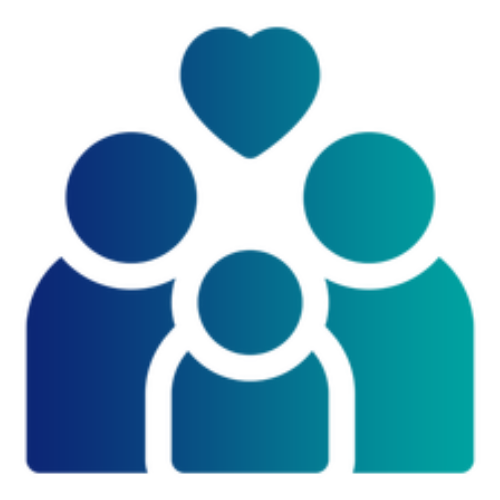
Orienting Afghan Newcomers to Prenatal Care and Delivery in the United States
Discover how to overcome the challenges faced by Afghan refugee mothers in accessing prenatal care in the United States. Initiatives like group prenatal education classes in Washington State and hospital orientation programs in California provide culturally appropriate support for expecting Afghan mothers.
Bringing Vaccines Directly to Afghan Communities
Learn how community-driven pop-up COVID-19 vaccine clinics overcome access barriers for refugee, immigrant, and migrant (RIM) communities in the United States. Explore successful models in Seattle, Buffalo, New York, Illinois, and Maine, emphasizing community engagement, cultural sensitivity, and convenience.
Webinar: Assisting Newcomers with Navigating the U.S. Health Care System
This training is geared toward direct service staff, including case workers, medical case workers, case managers, etc., who are interested in an introductory understanding of the different healthcare benefits and coverage options available to their clients. This training is also relevant for community partners and sponsors providing initial resettlement assistance to newcomers.
PDF: Assisting Newcomers with Navigating the U.S. Health System
This guide provides basic information on U.S. healthcare coverage options and health-related benefits available to newcomers, including Refugee Medical Assistance (RMA) and Medicaid. It also names key U.S. health services available to newcomers. This guide was created by Switchboard in collaboration with Minnesota Center for Excellence and Newcomer Health and the National Resource Center for Refugees, Immigrants, and Migrants (NRC-RIM).
Resource: Helping Clients Prepare For Initial Medical Appointments
These resources share ideas about how service providers can help prepare newcomer clients for their initial medical appointments. They include what clients need to know, what service providers should remember to review with clients, and how can clients prepare. Read the blog or download the checklist and reference guide to get started.
Resource: Problem-Solving Health Care Access Issues
This guide, created by Switchboard in partnership with the Society of Refugee Healthcare Providers, reviews possible strategies for addressing common healthcare access issues including transportation, interpretation, competing demands, insurance, and barriers to follow-up care.
Settle In is an app, website, and Facebook community that engages Afghan newcomers in an interactive format. Settle In provides a wealth of information on healthcare in the United States, ensuring that clients have the knowledge and resources to make informed decisions about their well-being.
The below resources offer guidance on navigating the U.S. healthcare system in Dari and Pashto in written and audio formats. Topics covered include the initial healthcare screenings, types of healthcare providers, healthcare rights, and American concepts of health.
